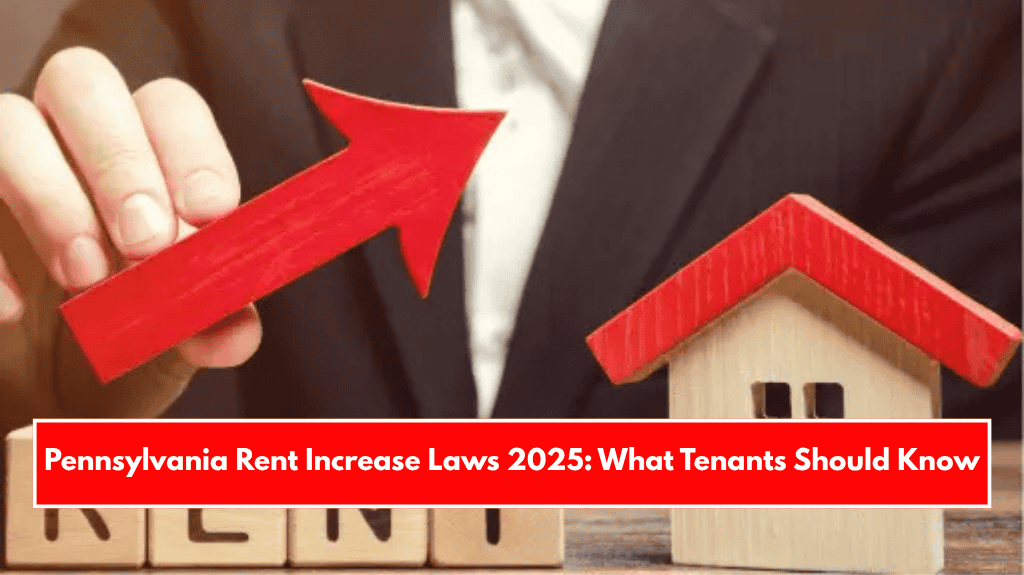Pennsylvania’s rental landscape in 2025 remains largely favorable to landlords when it comes to rent increases, but important protections and proposed reforms are shaping the experience for tenants. Here’s a comprehensive overview of what renters need to know about rent increases, their rights, and recent legislative developments.
No Statewide Rent Control-But Notice Is Required
- No Rent Cap: Pennsylvania does not have statewide rent control. Landlords can raise rent by any amount they choose, whether it’s 5%, 10%, or more, as long as they follow proper procedures.
- Notice Requirements: Landlords must provide written notice before any rent increase takes effect. The standard notice period is at least 30 days for month-to-month leases, 7 days for weekly leases, and 60 days for annual or quarterly leases.
- Lease Restrictions: For fixed-term leases, the rent cannot be increased until the lease expires unless the lease itself allows for mid-term increases.
Tenant Protections and Rights
- Fair Housing Laws: Landlords cannot raise rent in a way that discriminates against tenants based on race, religion, gender, disability, or other protected categories.
- Retaliation Prohibited: It is illegal for landlords to increase rent as retaliation against tenants who exercise their legal rights, such as filing complaints about housing conditions or discrimination.
- Security Deposit Laws: Updated regulations limit security deposits to two months’ rent in the first year, then one month thereafter. Landlords must return deposits within 30 days of move-out, providing an itemized list of any deductions.
Recent and Proposed Legal Changes
While there is no rent cap in effect as of May 2025, several legislative efforts could impact future rent increase rules:
- Senate Bill 546 (2025): This bill, introduced in April 2025, proposes to establish a Rent Control Advisory Board and regulate residential rental property rate increases. However, as of now, it is only pending in committee and not law.
- House Bill 72: Seeks to cap annual rent increases at 10%. If enacted, landlords would be limited to raising rent by no more than 10% per year.
- Other Tenant Protections: Additional bills under consideration include just cause eviction protections, application fee transparency, and the right to legal counsel for tenants facing eviction.
Local Ordinances and City-Specific Rules
- Philadelphia: The city has its own housing code and, as of 2024, a permanent eviction diversion program requiring landlords to attempt mediation before filing for eviction. Additional local rules may apply to rent increases and tenant protections in Philadelphia.
What Tenants Should Do When Notified of a Rent Increase
- Review the Notice: Ensure the landlord provided proper written notice with the new rent amount and the effective date.
- Check Your Lease: Confirm whether your lease allows for mid-term increases or if the increase is only permitted at renewal.
- Know Your Rights: If you suspect the increase is retaliatory or discriminatory, you can file a complaint with the appropriate housing authority.
- Negotiate or Seek Help: If the increase is unaffordable, consider negotiating with your landlord or seeking assistance from local tenant advocacy organizations.
Frequently Asked Questions
| Question | Answer |
|---|---|
| How much can my landlord raise my rent? | There is no state-imposed limit; landlords can raise rent as much as they wish, provided they give proper notice and do not discriminate. |
| How often can rent be increased? | As often as the landlord wishes, but only at lease renewal or as allowed by the lease, with proper notice. |
| Is a new lease required for a rent increase? | Not if the increase occurs at renewal and is properly documented; otherwise, the original lease terms apply. |
| Can I challenge an unfair rent increase? | Yes, if the increase is retaliatory, discriminatory, or not properly noticed, you may challenge it in court or with housing authorities. |
Key Takeaways for 2025
- Pennsylvania has no statewide rent cap, but landlords must give written notice before increasing rent.
- New laws are under consideration that could cap increases or expand tenant protections, but as of May 2025, no such statewide limits are in effect.
- Tenants are protected from retaliation and discrimination, and must be given a habitable living environment.
- Stay informed about local ordinances, especially in cities like Philadelphia, where additional rules may apply.
By understanding these laws and monitoring legislative developments, Pennsylvania tenants can better protect themselves and respond effectively to rent increases in 2025.
Sources:
- https://www.steadily.com/blog/rent-increase-laws-regulations-pennsylvania
- https://legiscan.com/PA/bill/SB546/2025
- https://www.realtor.com/advice/rent/rules-on-raising-rent/
- https://rentpost.com/resources/article/raise-rent-laws-in-pennsylvania/
- https://renters.equalhousing.org/application-lease/rent-increases/













